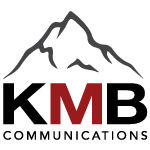If prospects aren’t saying yes to what your firm is suggesting, consider changing the structure of the conversation.

Today, integrators must skillfully balance the needs of the client and the stated budget while simultaneously ensuring the client understands that the proposal provided achieves exactly what they desire. Protecting the spec is critical for maintaining integrator margins, but products and prices are the first thing to get scrutinized when negotiations shift to the overall cost of the project.
To put things into perspective, D-Tools shared in its 2023 Midyear Market Health Report that only 47 percent of the quoted price remains in the final contract. Read that again: Only 47 percent of the quoted price remains in the final contract. Yikes, that’s a lot — much more than I would have suspected. Many integrators I’ve worked with and know will say keeping margins intact is proving to be more challenging than before. Much of this is attributed to the broad availability of product pricing information online and the fact that consumers are more aware now than ever before of what technology can do and have a sense of relative price points (or believe they do).
When faced with “value-engineering” or “de-scoping” conversations that reduce the price or scope of the original spec, here are three things you can try:
- Take time to state and reiterate your firm’s differentiators — the unique aspects of the company that the competition does not have. If you don’t already have this clearly defined, do that now and make sure everyone on the team knows, understands, and can repeat them with confidence and ease. This should be part of the conversation from the very start, but it bears repeating when you deliver the proposal.
- Provide relevant examples of your firm’s authority and trustworthiness — share not only affiliations but also awards won and accolades received from people or businesses like those you are proposing new business to. Proudly showcase positive reviews and provide some context for how they were derived; what the projects entailed and how your firm went above and beyond.
- Proactively set expectations about the proposals your firm provides — telling the prospect or client what they can expect and then delivering to (or above) that is a great way to win the project, which, of course, most already know. However, setting expectations for the way projects are priced, how installations are supported, and how the client will never be left in a lurch because of this high standard will prevent extensive questioning.
In addition to creating branded sales tools and leave-behinds that provide this information, some firms are looking at rewriting the script, so to speak, which is a fantastic idea and a great use of time as the year gets underway. Why bother if sales are happening on the regular? Assuming your team can deftly navigate price negotiations and protect the spec that’s best not only for the client but also for your firm could prove costly in 2024, as consumers are only getting more savvy and the need to effectively defend what we do in the custom installation channel and what people should expect to pay is more important than ever before.
Have you listened to the pitch your team is providing? How successful is the close rate? How are projects lining up for the year, and what do the margins look like on them? If you don’t know or haven’t looked in a while, go through that exercise now, and with those answers chart a new course for the year that includes modifying the approach to ensure a more successful outcome, more often.
These are just a few suggestions, questions to ask, and things to consider. Of course, and as always, if you need help sorting out the script, finding a way to put the right words on the page, or an effective communications strategy for your firm, drop me a line. I’m here to help!
—
A 25+ veteran of the residential tech & AV integration industries, Katye McGregor Bennett is the CEO of KMB Communications, a boutique communications firm that anchors the intersection of technology + design by connecting brands, buyers, and prospective audiences through creating compelling content and conversation that elevates and amplifies. In addition to co-hosting Design Uncut with Veronika Miller, Katye hosts two popular podcasts, Connecting Tech+ Design and AV Trade Talk. She is part of the DesignHounds influencer group and also serves on the NAHB Custom Technology Work Group, is a strategic advisor in the CEDIA, HTA, and AVIXA communities, a frequent contributor to Residential Systems, Connected Design and founder of the AV Yoga group.

